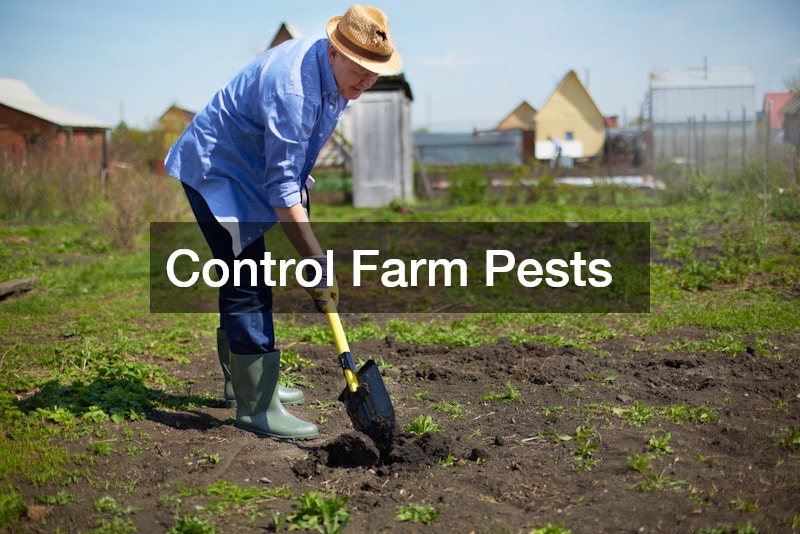Keeping Up With Farm Operations How to Balance Farm and Family
Running a farm is more than just a job—it’s a lifestyle that blends long hours, careful planning and a deep connection to the land. For many Australians, the challenge isn’t just managing the crops, livestock and machinery, but finding a way to balance farm operations with family life. Without proper strategies in place, farm work can easily take over, leaving little time for personal connections or rest. But with a few smart approaches, it’s possible to create a routine that allows both farm and family life to thrive.
Farm duties require careful organisation. From ensuring machinery is maintained to managing livestock, there are countless moving parts that need attention. While some tasks are seasonal, others demand daily oversight. For families working together on a property, it’s essential to delegate responsibilities and establish clear schedules. By understanding priorities and using available resources efficiently, farmers can reduce stress, prevent burnout and ensure that both work and family needs are met. In this guide, we’ll explore practical ways to streamline farm duties while keeping family life intact.
Organise Your Shelter

A well-organised farm starts with safe and practical structures. Having the right spaces to store machinery, feed or equipment can make daily tasks far easier. When farm buildings are arranged logically, it reduces wasted time and increases efficiency across farm operations. Planning and designing shelters thoughtfully also helps protect assets from weather damage, which can save both money and effort in the long term.
For example, installing a custom carport can provide a versatile storage solution. It offers protection for vehicles, machinery or hay, while also creating a central hub for organising smaller equipment. By keeping essential items accessible and in good condition, farmers can focus on other farm duties without wasting time tracking down tools or repairing damaged equipment.
Maintain Your Tractor
Tractors and machinery are the backbone of farm duties, so keeping them in good working order is essential. Regular checks and maintenance routines can prevent costly breakdowns and keep operations running smoothly. A well-maintained tractor also ensures safety, allowing the whole family to work confidently around large equipment.
Having the right tractor parts on hand simplifies repairs and reduces downtime. By keeping a small inventory of commonly replaced components, farmers can fix issues quickly without halting work. This proactive approach to machinery management ensures that farm operations remain consistent, avoiding delays that could affect planting, harvesting or other essential tasks.
Secure Your Fencing

Maintaining boundaries and livestock enclosures is a key part of farm duties. Strong, well-kept fencing protects animals, crops and property, reducing the risk of accidents or escapes. Regular inspections and timely repairs are vital for keeping everything in order, particularly in areas with high traffic or harsh weather conditions. It’s important to consider the surrounding environment. Overgrown vegetation can weaken posts or obscure lines of sight, and uneven terrain may put extra strain on materials. Taking the time to monitor soil conditions and reinforcing vulnerable areas can prevent long-term damage.
For instance, installing a cattle grid can help manage animal movement while keeping vehicles on the right path. It’s a practical solution that supports safe farm operations and reduces the likelihood of livestock wandering into dangerous areas. Proper fencing and grid placement also make day-to-day chores easier, allowing families to complete tasks more efficiently.
Manage Your Waste
Waste management is often overlooked but is crucial for smooth farm duties. Efficient disposal systems prevent clutter, minimise health risks and help maintain a tidy, safe environment for both people and animals. Having a plan for waste management can reduce stress and improve the overall workflow around the property.
An effective strategy involves assessing the types of materials generated and separating them accordingly. Organic matter can be composted to enhance soil health, while recyclable items can be collected for local programs. Even smaller measures, like dedicated bins for tools, packaging or chemical containers, contribute to overall organisation. Training family members to follow clear routines ensures everyone participates in maintaining cleanliness. Regularly reviewing and adjusting the system helps identify inefficiencies and prevents unnecessary accumulation. A well-planned approach reduces hazards, supports sustainable practices and allows more time to focus on essential daily tasks.
Using skip bin hire services is a simple way to handle larger amounts of farm waste. It keeps paddocks and work areas clear, giving family members more space to carry out daily tasks. By scheduling regular waste collection, farmers can focus on other farm duties, confident that the property remains organised and functional.
Control Farm Pests

Pest management is another critical aspect of farm operations. Uncontrolled pests can damage crops, spread disease among livestock and affect overall productivity. Implementing preventative measures and monitoring programs helps protect both the farm and the family’s livelihood.
Pest control strategies can range from natural deterrents to professional services. For example, using traps, barriers or approved chemical solutions can reduce infestations before they become unmanageable. Keeping pests under control ensures that farm duties proceed without interruptions and safeguards the quality of produce and livestock, benefiting the entire family.
Balancing farm operations with family life may feel overwhelming at times, but careful planning and practical solutions can make a big difference. From organising shelters and maintaining machinery to securing fencing, managing waste and controlling pests, each element contributes to a smoother daily routine. By using tools and services like custom carports, tractor parts, cattle grids, skip bin hire and pest control, farmers can protect their assets while keeping their workload manageable. Ultimately, creating a structured approach to farm duties allows families to work together efficiently, enjoy quality time and maintain both a productive farm and a healthy home life.


